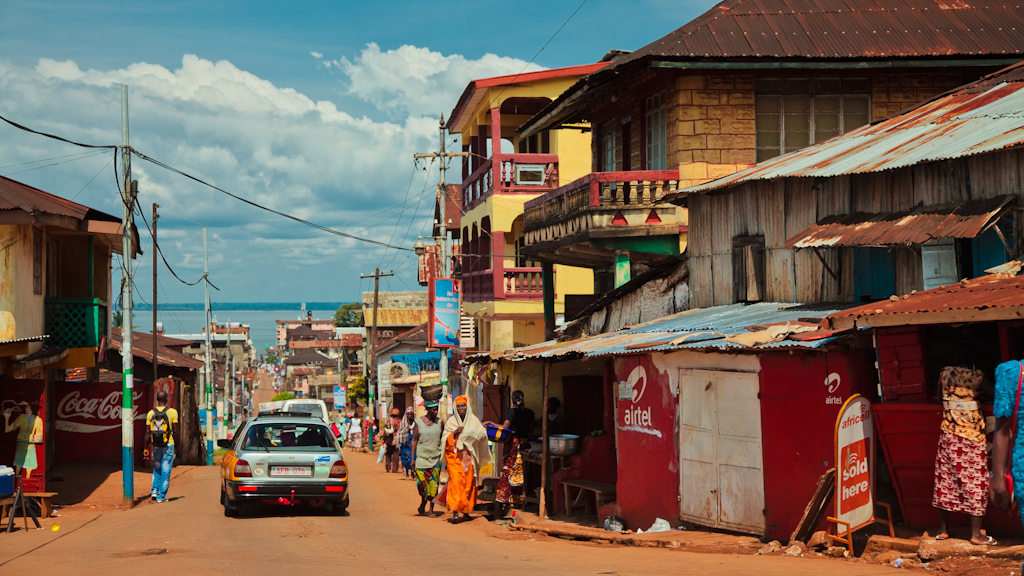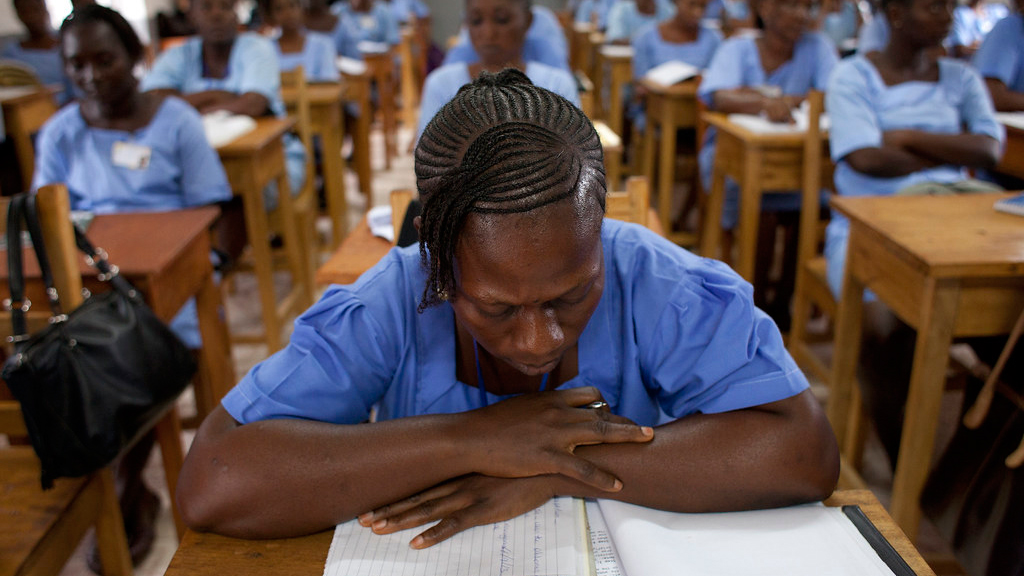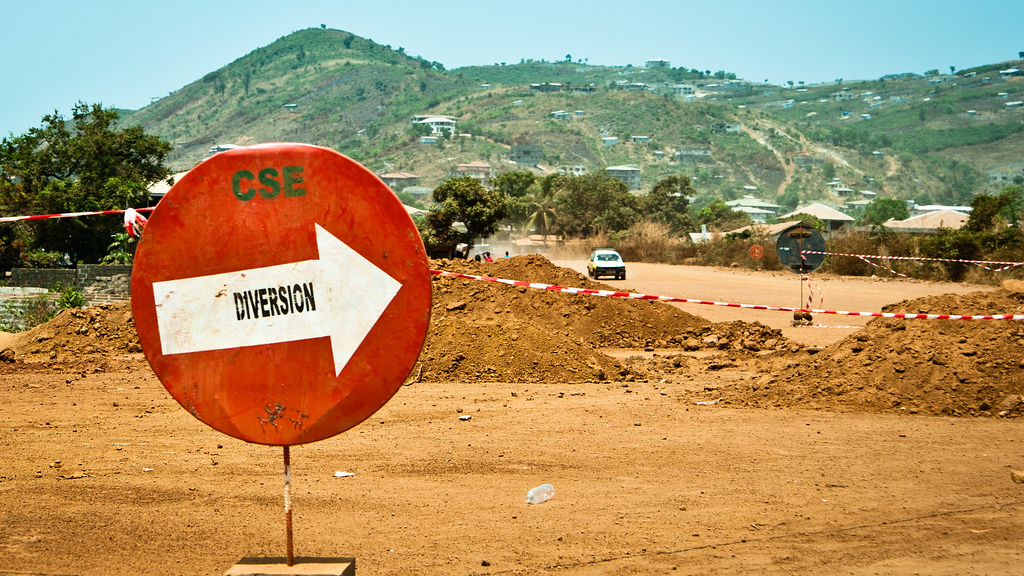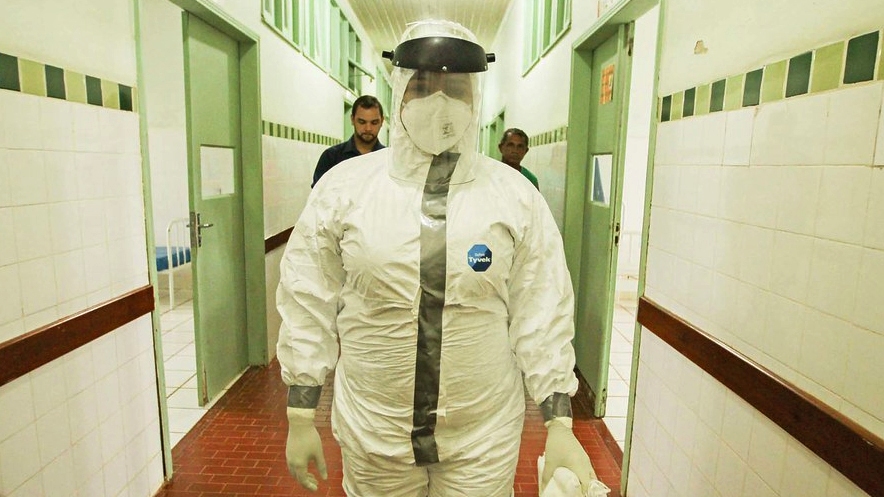A new series presents the output from a social science writing workshop hosted at Njala University, Sierra Leone. Critically engaging with how a workshop format could be decolonised, the organisers created a space to allow early-career scholars from across Sierra Leone to produce work rooted in personal experience or ongoing research projects.
Global North scholars researching African contexts must be cogently aware of our privileged position within unequal structures of knowledge production. While British scholars freely fly to international conferences, a recent report by the UK’s Royal African Society highlights how African scholars are increasingly denied visas to present research at European conferences. These inequalities deeply affect the nature of knowledge production within social science disciplines.
One initiative which explores how multi-layered and deep these inscriptions of inequality are LSE’s Citing Africa podcast series. On a personal and institutional level, many of us at LSE are committed to building meaningful collaborations with our colleagues through co-authoring and joint writing ventures. Yet we are aware that best intentions can go awry and may not be representative of real collaboration. Attempts to address legacies of privilege can unwittingly reproduce the inequities we seek to counter. M. Neelika Jayawardane, in a recent edition of Journal of African Cultural Studies, refers to ‘[t]he capacity-building-workshop-in-Africa hokum’. Based on a writing workshop in East Africa where she was invited as a mentor, the author explains how the process was not only useless but demeaning for African scholars. Capacity building was a somewhat meaningless term, and there was little attempt to engage critically with how a workshop format could be decolonised.
Aware of such cautionary tales, we aimed to embed collaboration into a writing workshop at Njala University in Sierra Leone from the planning stages. The workshop was organised as a partnership between the university, LSE’s Firoz Lalji Centre for Africa and RECAP, based at the London School of Hygiene and Tropical Medicine and Sierra Leone. By hosting the writing retreat at Njala in June 2019, we aimed to redistribute international partnerships to a rural university setting, away from the capital. From the outset the workshop design was co-produced. The team at the University of Sierra Leone identified activities to strengthen social science writing, in accordance with ongoing attempts to build capacity. Regular skype calls between London and Sierra Leone ensured. We wanted the workshop to enable Sierra Leonean scholars to enhance their own writing outputs: develop articles for publication, completing PhD chapters or preparing a PhD proposal.
A key intervention was the structuring of the workshop itself. Rather than arrive with a pre-set agenda, the participants were grouped into working clusters of 4–6 scholars, led by a team leader from LSE/LSHTM. Team leaders were selected on their basis that their research topics and methodological approach matched research agendas of Sierra Leonean scholars. Throughout the week, these sessions were tailored and structured around the career stage and intended output of the attendees. According to one participant, journalist and lecturer Michael Sowa, ‘I had been fighting for answers for more than two years, and then I could see that here I could get solutions in a few minutes.’ We aimed to create space and time for exchange, and for individual collaborations to develop.
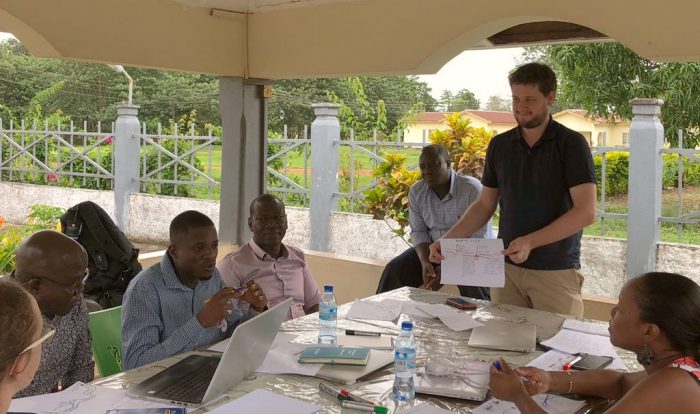
A recurring theme that animated our discussions, and work on the academic writing projects, was the greater integration of their own extensive personal experiences and involvements in the areas of their research; a task that is a particular challenge when the boundaries of fieldwork and ordinary life become blurred. In many cases this involved finding ways to weave authoritative and distinctive personal voices into their presentation of research findings and analysis. Creating a space for the researchers to explore ideas in this way proved fruitful. In the words of the Deputy Vice chancellor of Njala University, these interventions are able to reveal how ‘we look at problems that we see around us on a daily basis.’
Where we came together for group discussions, there were efforts to speak across contexts. Discussions about fieldwork revealed a difference between focusses on the Sierra Leonean scholars’ experiences of being a researcher in the field and LSE academics’ concern with methodologies.
One riveting evening discussion explored how African scholars had reinterpreted ethnographic data collection. Another evening session which ran late into the night explored comparative peace processes in Sierra Leone and Colombia. Of the evening, Prof Lopez-Uribe at the University of Los Andes in Bogota recalls:
‘This was a unique experience for me as an academic. The participants were so motivated. I learned a lot from them, from their own life experiences, from the obstacles they had overcome, and from their eagerness to learn. The most meaningful moment of the event was when I had the opportunity to tell all the Sierra Leonean participants about my country, Colombia, and our own experience of post-conflict and reconciliation and asked them about this situation in Sierra Leone. This interaction was very fruitful for me. They helped me to understand the Colombian context through the experiences of Sierra Leonean people. The similarities of the conflict context of both countries helped to develop a strong empathy between all of us. This was a precious moment. I hope we can keep the strong bond we developed and transform them into more events or activities to help the Sierra Leoneans academics build research capacities.’
Blogging emerged as another way of reformatting the workshop. Initially conceived as producing short presentations, there was immense enthusiasm for conveying everyday experiences and ideas through a shorter written piece. With a blog, emerging research can be developed and published without the long publishing process. This was a medium where ideas could get out there! Participants vocalised that a major barrier was the lack of platforms to publish their work. Through the Africa at LSE blog, we have provided a space for these pieces developed during the workshop.
The blogs cover a wide range of topics, covering everyday experiences of Ebola, transport infrastructure, perceptions of and objectives for tackling structural inequalities, as well as national development goals on education and employment. They are unique writings with much for us in the Northern academy to learn. See the full list of blog posts below. Enjoy!
Death and dignity in public health responses to Ebola – Tommy Matthew Hanson
A mid-wife’s experience with postnatal depression in Sierra Leone – Abdulai Jawo Bah
Surviving without a certificate: the infected and affected lives of Ebola – Ahmed Vandi
Bintumani-III: political tension and national cohesion in Sierra Leone – Teddy Foday-Musa
Teenage pregnancies and employment in Sierra Leone – Mohamed Hashim Rogers
Sierra Leone’s declining education results in the WAEC – Mohamed Sengbe Mustapha Feika
Rumours, stigma and stress during Sierra Leone’s Ebola epidemic – Angus Tengbeh
Infrastructure in Sierra Leone: fixing the road to nowhere – Abdulai Salia Brima
Sierra Leone’s battleground: how do you survive your country’s war? – Foday Kamara
Reclaiming Fourah Bay College from under-resourcing and overcrowding – Michael Sevalie
Enormous thanks go to all of the participants of the workshop, as well as to Haja Wurie (University of Sierra Leone), Thomas Songu (Njala University), Melissa Parker (LSHTM) and Tim Allen for their support for these activities. The workshop was generously supported by RECAP, the LSE Firoz Lalji Centre for Africa and the Centre for Public Authority and International Development (CPAID).
Photo: bobthemagicdragon, Flickr


